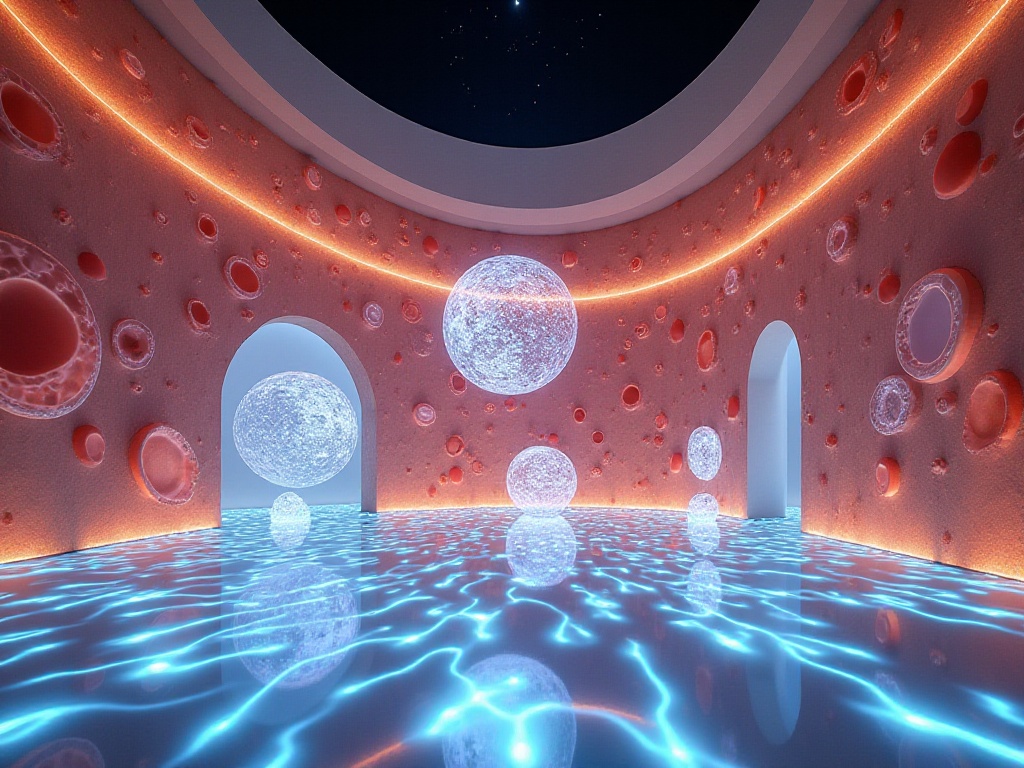Opening
Hello everyone, I'm Xiaomei, your old friend. As a beauty blogger who has been in the industry for ten years, today I want to share a particularly important topic with you - anti-aging.
I know many of you see the word "anti-aging" and think it's too far away, feeling you're still young and don't need to consider these things. But sisters, the truth is cruel! Our skin starts declining from age 25! Just look at those 30+ sisters around you - some still look youthful, while others have started showing signs of aging. Where does this difference come from? It comes from how well they've taken care of their skin since age 25. Today, I'm going to share all the pitfalls I've encountered and treasures I've discovered over these ten years!
Understanding the Current Situation
To be honest, the beauty market is incredibly competitive now! In 2024, the global anti-aging product market has exceeded 200 billion USD. What does this mean? It's equivalent to every person on Earth spending $25 on anti-aging products! And this number is still growing rapidly.
When I first entered the industry, there weren't so many anti-aging products. Back then, people thought luxury face creams were the standard for anti-aging, not knowing that many expensive products might not be as effective as some affordable ones with excellent ingredients. After years of research and practice, I've seen too many people fooled by marketing, spending big money without seeing results. So today, I want to share a truly scientific and effective anti-aging solution.
Young people today are under tremendous pressure, with late nights, social obligations, and long hours sitting at desks being the norm. These lifestyle habits accelerate skin aging. I've seen too many people born in the 90s already developing fine lines, dullness, and sagging issues. So, anti-aging really can't wait!
Scientific Foundation
When it comes to the scientific principles of anti-aging, some sisters might find it boring, but this knowledge is really important! Because only by understanding the principles can we better choose products and develop care routines.
Let's first talk about antioxidants. Our skin faces free radical attacks every day, which damage skin cells and accelerate aging. Antioxidant ingredients act like our skin's shield, neutralizing these harmful free radicals. Besides the well-known Vitamin C, there are many powerful antioxidant ingredients.
For example, resveratrol was first discovered in red wine. Research shows its antioxidant ability is 10 times stronger than Vitamin C! Plus, it can activate longevity genes and delay cellular aging. There's also the recently popular ceramides, which can repair damaged skin barriers, prevent water loss, and make skin look younger and fuller.
Let's talk about cell regulation. Our skin cells constantly renew, but this renewal process slows with age. Cell regulators are used to accelerate this renewal process. Retinol is a typical example - it can promote epidermal cell renewal and increase collagen synthesis. Peptides are another important class of cell regulators; they can act directly on specific cell receptors to regulate cellular functions.
Recent research has also found that Epidermal Growth Factor (EGF) plays a key role in anti-aging. It can promote cell division and proliferation, accelerating skin repair. However, the concentration and usage method of these ingredients need special attention, and it's recommended to use them under professional medical guidance.
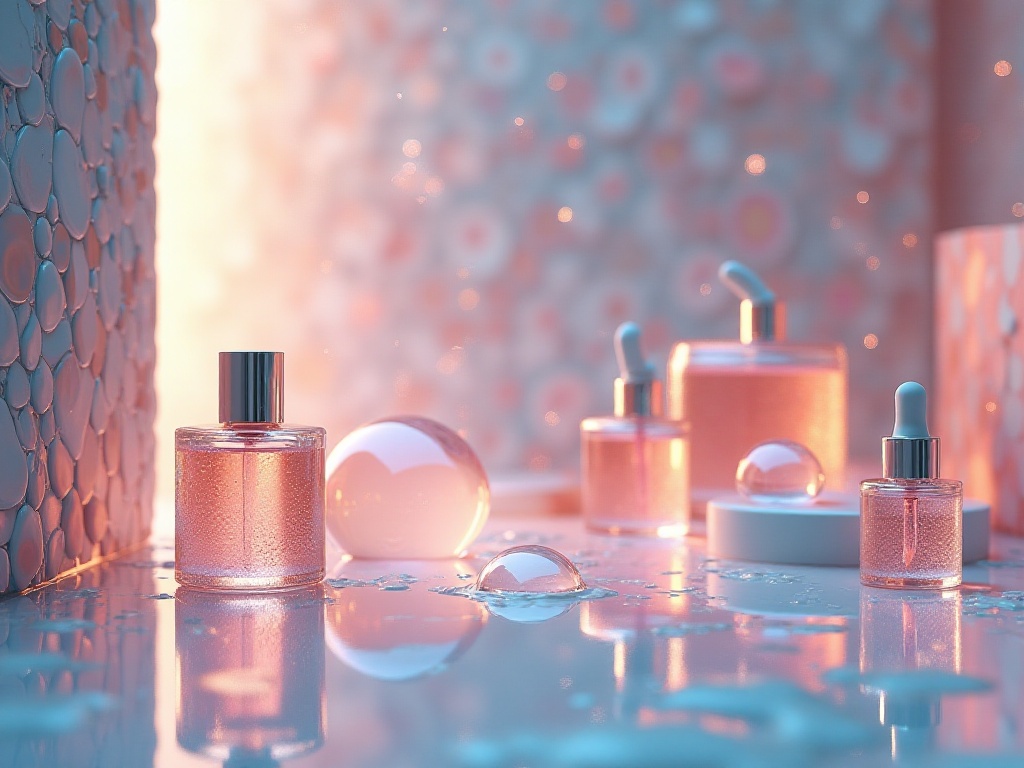
Product Selection
When it comes to product selection, this is a major subject! I test hundreds of skincare products every year to recommend truly effective products to everyone.
First, more expensive products aren't necessarily better. Luxury brand products do have their advantages, like YSL's gold essence bottle with its unique patented formula - the anti-aging effect is indeed good. But the price is truly daunting, with one bottle costing nearly a thousand.
Actually, many affordable brand products are very effective now. For example, Beauty Creations' retinol essence, though only one-tenth the price of luxury brands, uses more stable retinol derivatives and performs just as well as high-end brands.
When choosing products, the most important thing is to look at the ingredient list. I recommend focusing on these types of ingredients:
- Antioxidants: Vitamin C, resveratrol, Vitamin E, Coenzyme Q10, etc.
- Cell regulators: Retinol, peptides, growth factors
- Moisturizing ingredients: Hyaluronic acid, ceramides, glycerin
- Whitening ingredients: Niacinamide, arbutin, Vitamin C
- Anti-inflammatory ingredients: Centella asiatica, aloe vera, licorice extract
However, note that more ingredients aren't always better. Skincare products should be chosen based on your skin type and needs, as different ingredients may interact with each other. For example, retinol and Vitamin C should not be used together as they can affect each other's effectiveness.
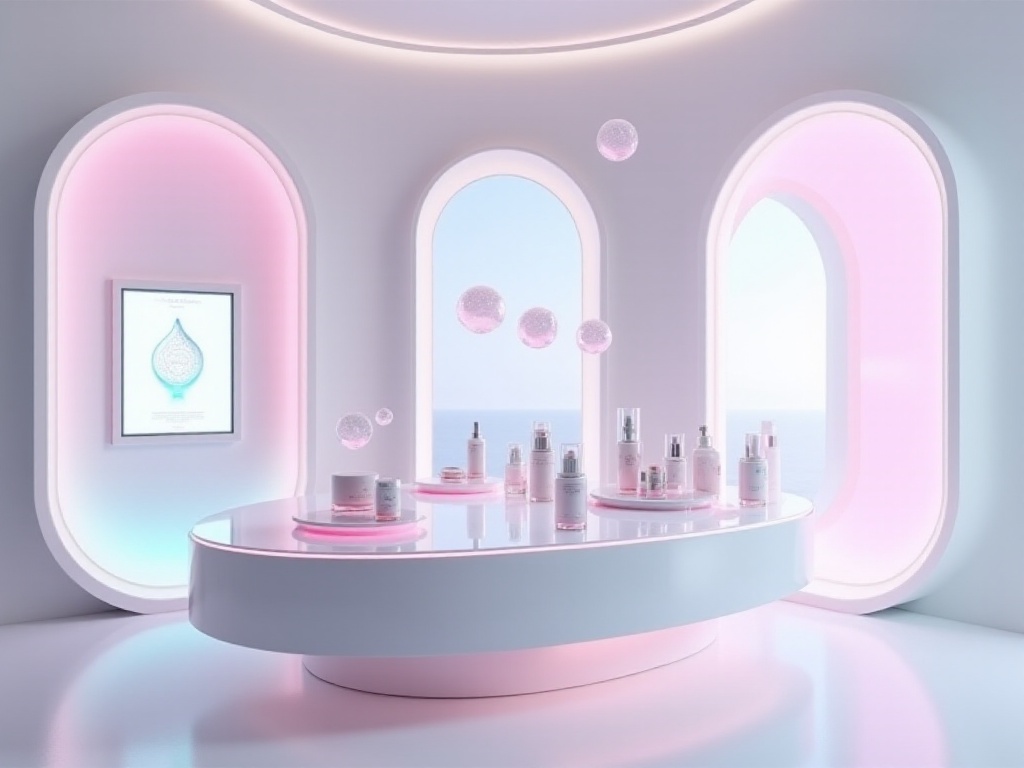
Daily Routine
Let's talk about specific care routines. Remember, anti-aging is a systematic project that needs to be approached from multiple angles.
First is basic cleansing. Many people think cleansing isn't important and casually use any facial cleanser. But know that improper cleansing leads to keratin buildup, affecting the absorption of subsequent skincare products. I recommend choosing gentle amino acid-based cleansing products and cleaning thoroughly morning and night. If you wear makeup, definitely do double cleansing.
Sun protection is absolutely crucial! I've seen too many people only start taking sunscreen seriously in their 30s, but by then it's too late. Choose SPF50+ sunscreen and use it daily, even on cloudy days. Many sunscreens now have light textures without feeling heavy. And sunscreen isn't just about applying once - it's recommended to reapply every 2-3 hours.
Using essence is also key. I recommend starting to use anti-aging essence after age 25, beginning with low-concentration retinol. Use it gradually, starting with 2-3 times per week and slowly increasing frequency. If irritation occurs, adjust accordingly.
Choosing the right cream is also important. Different age groups need different creams. For ages 25-30, focus mainly on hydration and moisture. After 30, choose creams containing anti-aging ingredients. At night, you can choose slightly thicker textures to help skin repair.
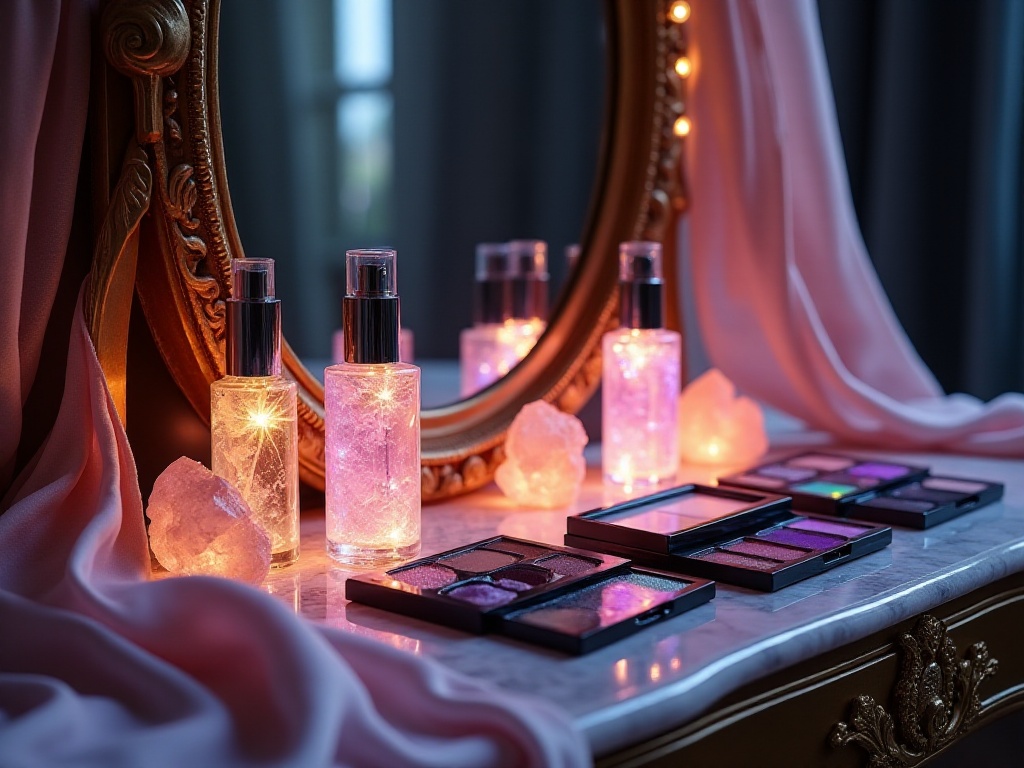
Advanced Tips
For better anti-aging results, you can consider some medical-grade care options. But these procedures must be done at legitimate medical aesthetic institutions - never go to small clinics for cheaper prices.
I've tried many medical-grade treatments myself. For example, chemical peels can improve skin texture and promote collagen regeneration. But post-treatment care is especially important - pay attention to sun protection and avoid irritating skincare products.
Radiofrequency is also a good choice - it can stimulate collagen production through thermal energy and improve skin sagging. However, note that these procedures don't show results after just one session; multiple treatments are needed for noticeable effects.
There are also some emerging anti-aging technologies, like photofacials and ultrasound therapy, which work well. But choose based on your actual situation - not all procedures are suitable for everyone.
Nutritional Support
Internal nourishment is also an important part of anti-aging. Many people only focus on external skincare products but ignore the importance of nutritional supplements.
First is diet. Eat more foods rich in antioxidants, such as: - Berries like blueberries and strawberries - Dark green vegetables like broccoli and spinach - Deep-sea fish like salmon and tuna - Nuts - Teas like green tea and black tea
Olive oil is my daily essential - it's rich in monounsaturated fatty acids, which are particularly helpful for skin anti-aging. I usually use it for frying or in salads, and sometimes apply it directly to my body.
Collagen supplementation is also important. Although there are many collagen oral supplements on the market, the best way is to get it from natural foods, like fish skin and pork skin which are rich in collagen.
Water intake shouldn't be neglected either. Ensure adequate daily water intake to maintain skin hydration. I usually keep a large water bottle ready to remind myself to drink water.
Lifestyle Habits
At this point, we must mention the importance of lifestyle habits. Even the best skincare products won't be fully effective if lifestyle habits are poor.
First is sleep. Adequate sleep is especially important for skin repair. Research shows that 11 PM to 3 AM is when skin cells are most active in repair, so try to ensure sleep quality during this time. I know many young people like staying up late, but for the sake of your skin, you really need to break this habit.
Exercise is also an important part of anti-aging. Moderate exercise can promote blood circulation, accelerate metabolism, and make skin look more rosy and glowing. I stick to some aerobic exercise and yoga every week, which helps maintain both figure and skin condition.
Stress management is also key. Too much stress can lead to poor skin condition and accelerate aging. You can relieve stress through meditation, listening to music, etc. I give myself some alone time every day to relax both body and mind.
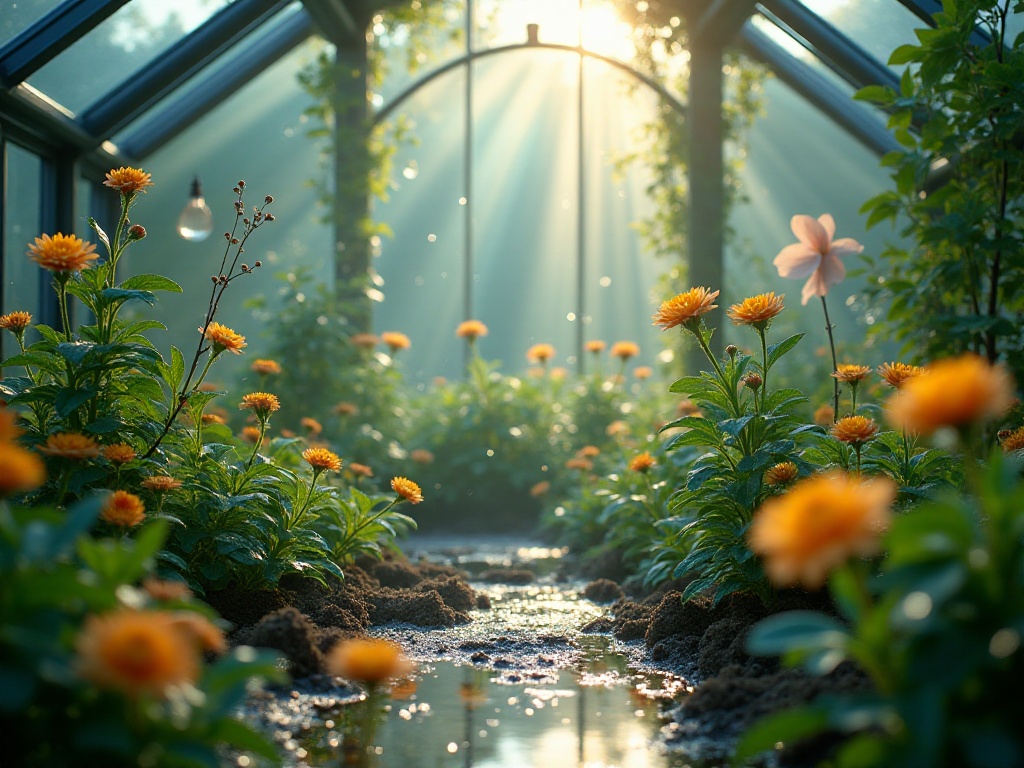
Seasonal Adjustments
Different seasons require different skincare focus. Adjust your skincare routine according to seasonal changes.
Spring is the repair period for skin - focus on hydration and repair during this time. Use more products containing hyaluronic acid and ceramides to help skin restore moisture.
Summer prioritizes sun protection - besides applying sunscreen, pay attention to post-sun repair. Prepare some soothing mists for hydration and cooling anytime.
Fall is when skin condition most easily fluctuates - pay special attention to hydration and antioxidation. This is when you can add some Vitamin C products to enhance skin's antioxidant capacity.
Winter focuses on nourishment and hydration - choose products with more nourishing textures. But don't neglect sun protection because it's cold - winter UV rays are not to be underestimated.
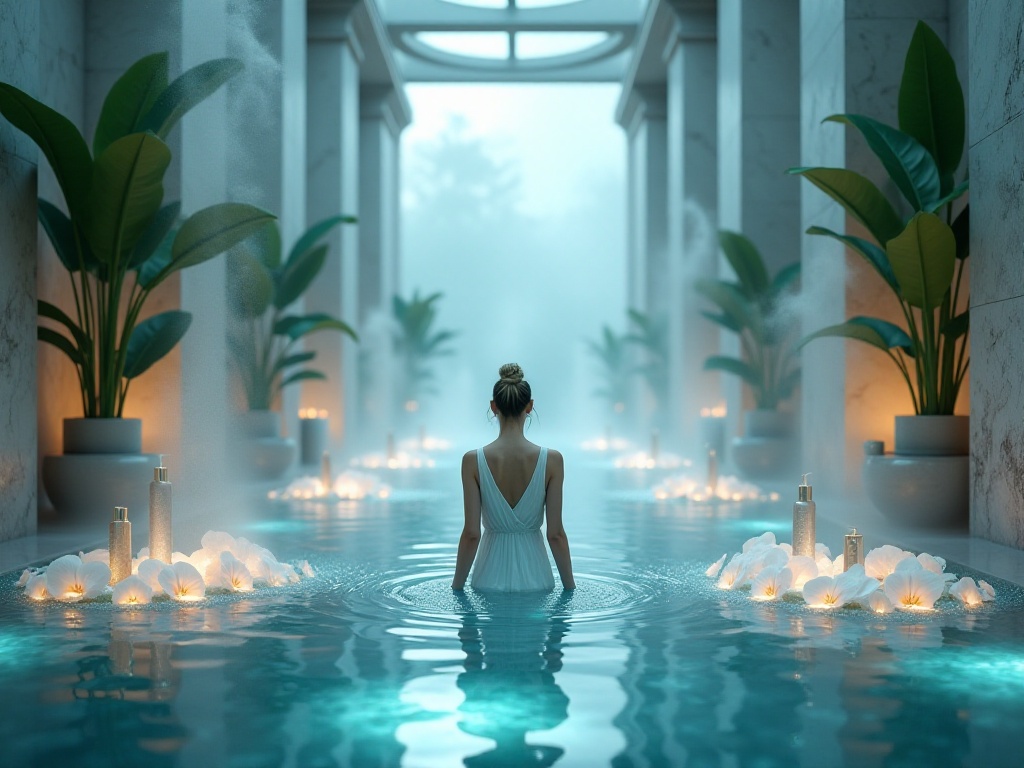
Summary and Outlook
After years of practice, I deeply understand that anti-aging isn't something achieved overnight - it requires persistent dedication. It's not solved by any single product or method but requires effort from multiple aspects.
Skincare technology keeps advancing, and I believe more effective anti-aging products will emerge in the future. But no matter how technology develops, good lifestyle habits and continuous care remain the foundation of anti-aging.
Finally, I want to say that anti-aging isn't about looking much younger than your actual age, but about maintaining your best condition at every age. Aging is inevitable, but we can make this process more graceful.
I hope everyone can find their suitable anti-aging solution and let time be gentler to us. Remember, it's never too late to start - the important thing is to take action now!







